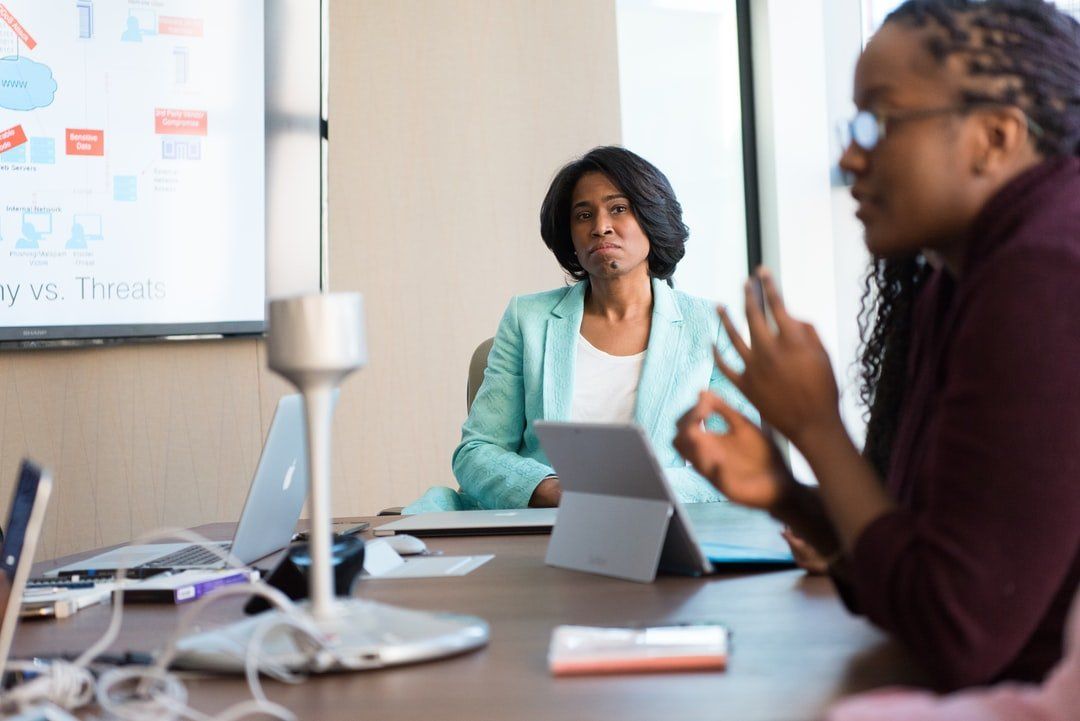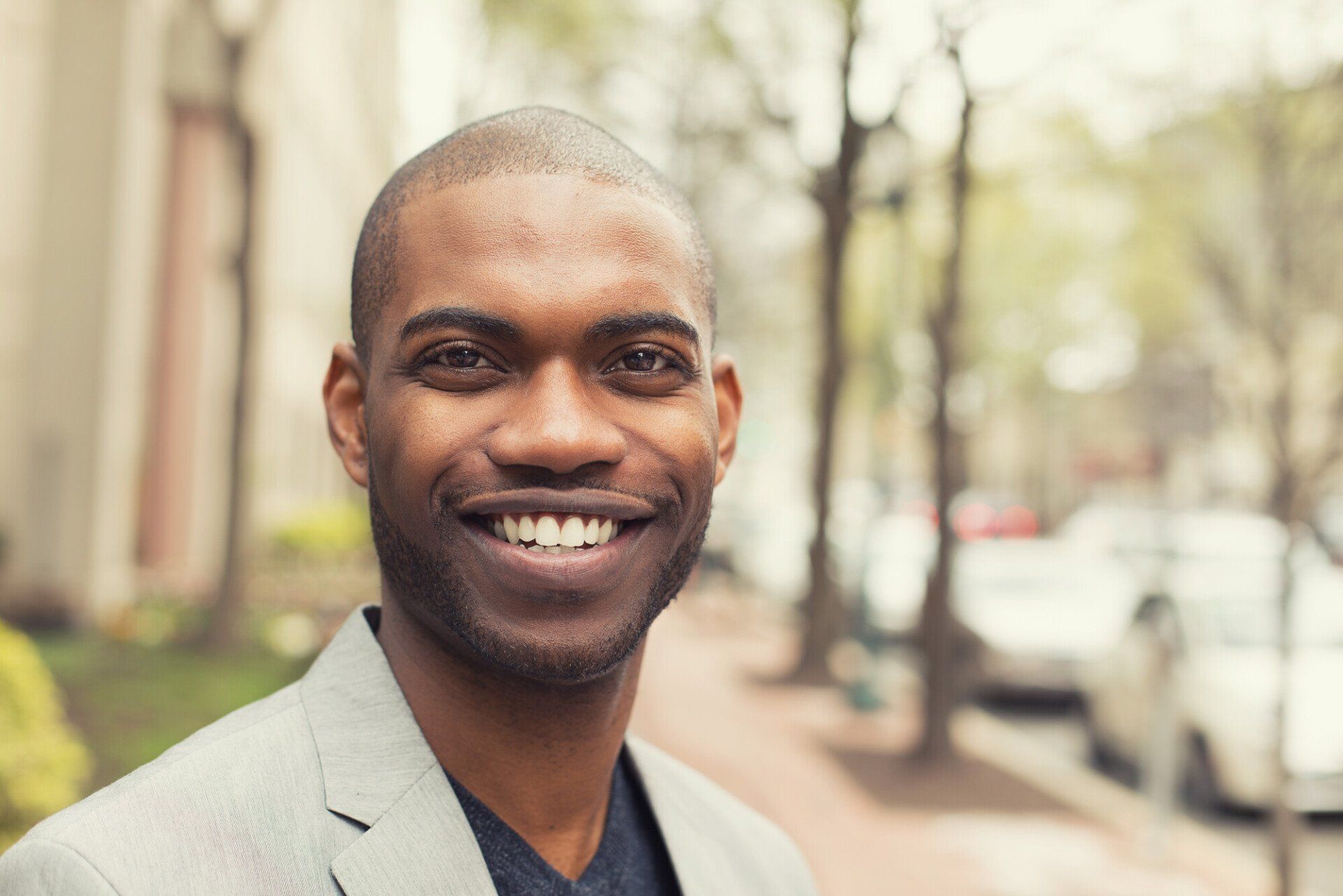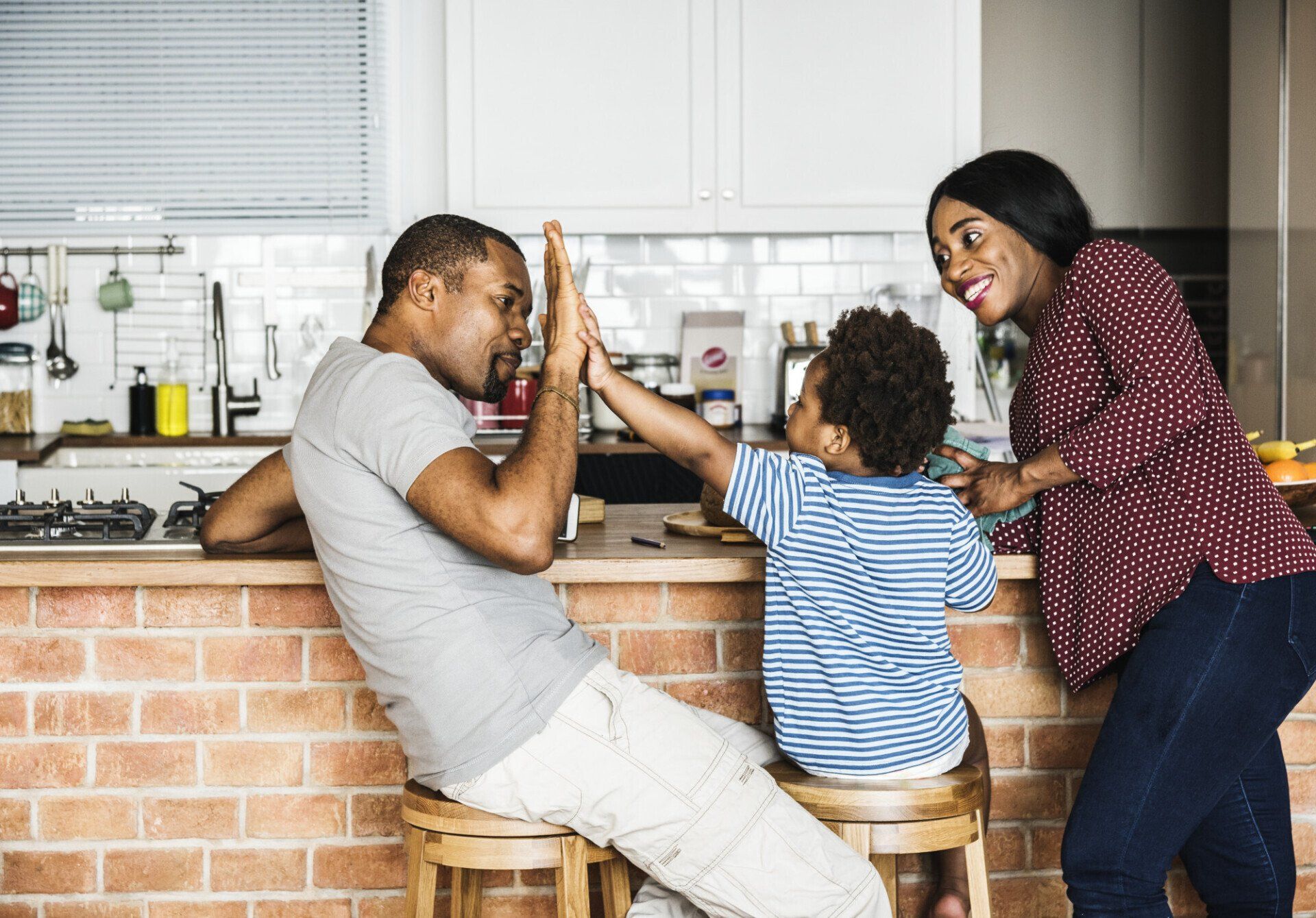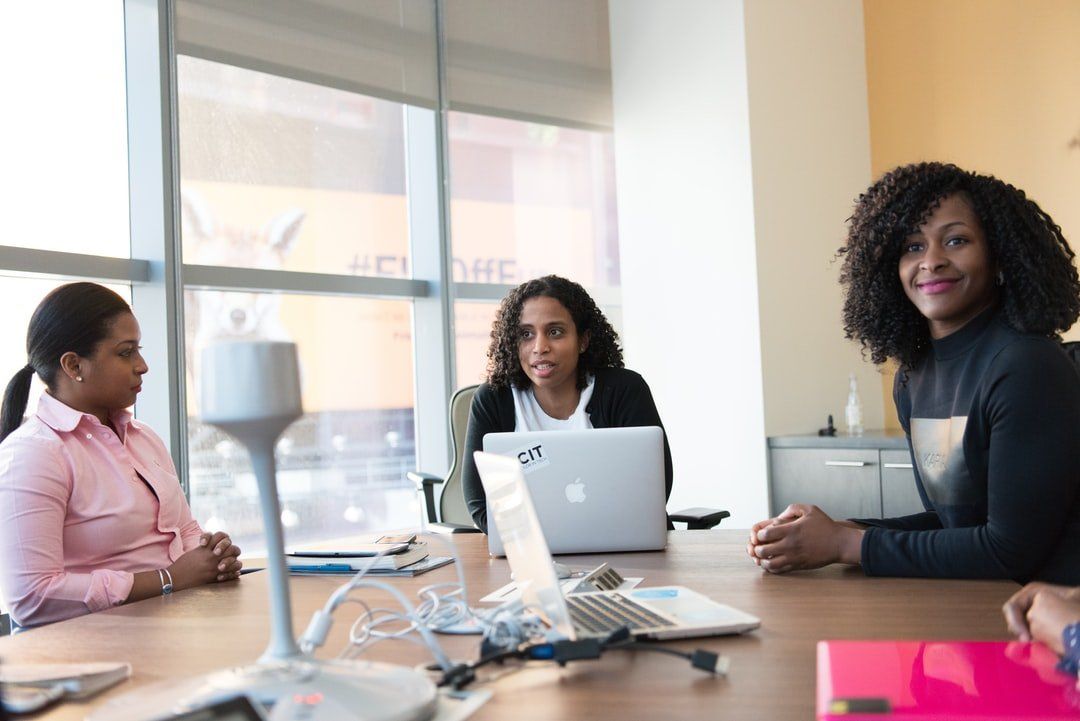Brett Izu - Entrepreneur | Visionary | Youth Development
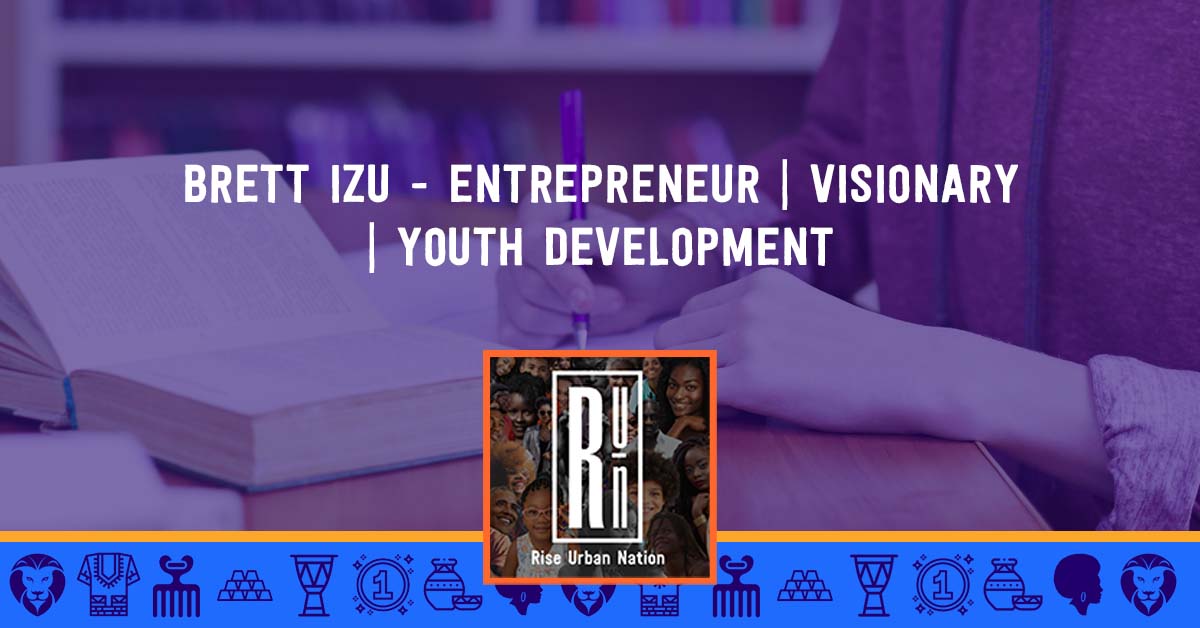
The youth is the future but they need people who can guide them along in their journey so they can succeed. Brett Izu is passionate about youth mentorship and development. He is a young and up incoming entrepreneur from Manchester, England. He is the Founder and CEO at YamUp Inc. YamUp Inc. brings the first African & Caribbean grocery shopping app to help close the technological gap between our community's cultural traditions. Bret is currently working on a business venture with his girlfriend called Lay&Slay. Lay&Slay provides you with what you need for your natural hair journey. In this episode, we discuss how mentorship and non-formal education helped him advance in life and business.
"Let's work together to change the face of education so Black youths stand a better chance at a future filled with ascension." - Brett Izu
Connect with Brett:
Twitter: @Empowerblack333
Instagram Brett: @bizu84
Instagram Lay & Slay: @lay_n_slay20 (Brett and his girlfriend's business)
Facebook: Brett Paul Izu
We are currently surveying our listeners (or viewers) to learn more about you. Please take a few minutes and visit our website and click on the 'Listener Survey'
link found on the home page. Thank you.
---
Listen to the podcast here
Brett Izu - Entrepreneur | Visionary | Youth Development
In this episode, we get to talk to Brett Paul Izu. What can I say about Brett? I enjoyed my conversation with him because he and I share a special connection in the reference that we grew up in two different cultures as I had eluded. Partially, I grew up in American culture and Nigerian culture. He was the same growing up in African-Nigerian and Jamaican cultures and having those two worlds and living in the UK, how sometimes those worlds did not work hand in hand. Sometimes they would collide. As he would say, nowadays, it wasn't as cool to be so grounded in your African or Nigerian culture at that time.
He's an outstanding gentleman. I loved his story and his journey as a Founder and CEO of YamUp. YamUp was the first African and Caribbean grocery shopping app to help close the technology gap between culture, traditions, and community. You can imagine the market on your phone. It was a great audacious goal to get connected and save time but still enjoy all our dear traditions. In this episode, we talk about his journey through that, other entrepreneurial journeys, how he met Sola, and all that good stuff. There are good and valuable life lessons along the way. Without further ado, I hope you enjoy this episode. Here is Brett Paul Izu.
---
We’ve got a special guest in the building, Brett Izu. Thank you for joining us. Where are you?
I'm in Manchester, which is up North.
Give me the backstory. How does the Nigerian brother get out into Manchester?
I've been a bit of a traveler because I've been living in different cities, to be honest with you. My mom's not originally from Derby, but she moved to Derby and he met my dad, who’s Nigerian. My mom's Jamaican, by the way.
To all the Jamaicas out there, “Big up.”
Big up to the rest of the Jamaicans and the Caribbean islands. My dad, at the time, moved down with my Nana and everything into Derby. Not Derby CityThat’s the countryside and everything, but I only lived down there for a while but then met my mom and everything. They got it cracking and my dad decided to disperse off and they moved to London. He’d think that he would ever see my mom when he was away. There used to be a book where you could look and see somebody's surname back in the days. By the surname, they will have somebody’s phone number.
They had a phone book and had everybody's name in it and everybody's contact details like their own telephone number. My mom looked and she remembered his surname. She looked and there were two surnames at that time because my granddad and my Nana weren’t together. She picked one of them, found the address, and went straight to London. That's when they were moved back to London. I met my family in London.
From then on, I've always been going back to London. My Izu family wanted me to move there, but it was too expensive for me. London is way too expensive. North is cheaper. I wanted to move out of Derby, but I didn't want to move there, so I moved to Nottingham, and eventually, I moved to Manchester, the second-best city to live in right now in the UK. That’s my background.
Thank you for telling that backstory. You got introduced to Sola. She’s amazing. I know she's doing big things over here in the US with startup businesses and so forth. How do you and Sola meet, out of curiosity? Give me that backstory.
The first steps that you need to do to find a mentor that you want. You need to know what you want first and what you want out of it.
At the time, I was working for a company called Innovation Networks. What that company was was a startup for people who wanted to start their own business. What we do is we give them advice, help them with a business plan, and give them a loan that’s government-backed. If anything goes wrong with that business, we'll back and help.
My role was to go out into different cities or speak to different people, get contacts and see who wanted to get involved or somebody like Sola, who was helping people in business. We can help her supply people with loans. I didn't know the event at that time, but my aunt introduced me to her. She said, “There might be somebody that you could have caught with.” I told her to come down to my event and she liked it. She liked how I was as a person. We hooked up from then and we stayed in contact. I helped her get some business and she helped me get some business. Out of work, personally, me and Sola and I have got on. She's a nice person. She chats a lot.
Every time we have a business, I'm trying to figure out how to cut her short because we need to go to the next thing. She chats so well that I had to make her the cohost of the podcast.
She does speak her mind. I'll be going somewhere with her and she'll be talking. Somehow, she slips me into the conversation and gets me a job. I’m like, “I don’t even know what I’m doing here. What's going on?” She’s like, “You're involved in this now. You're the director.” I was like, “Director? What are you talking about?”
You’ve got to love her, though. She gets business done. I was like, “Hold on. My plate is full already. Let me figure something out first.” Something that we were talking about before we even hit the record is I love the fact that you got Jamaican and Nigerian. Those are two different cultures. Dinner must have been amazing at your house. You had everything from curry goat to stew.
That's the best part of looking at it, but on the flip side to it, there was this part where I felt like I didn't know who I was before the two culture clashes. Nowadays, everybody's cool with each other. We've got this understanding going on, but there was no understanding at that time. I had to tone down being a Nigerian. I was proud to be Nigerian, but I had to tone it down because of gangster Boyz n the Hood. Little kids say you’re an African booty scratcher. They use that phrase a lot on me. I had to keep my head up, but it hurt me.
One thing I loved is that you grew up in two different households, per se. You’ve got that Nigerian and Jamaican influence. It’s two different cultures. How was that growing up?
Now it's okay because we’ve got up on the standing, but when I was a teenager, there was definitely a big ignorance because what would happen is when I’m with my friends, and a majority of my friends are from the UK and was heavily influenced by the Caribbean and Jamaican. There were probably a lot of Africans, but they toned it down because, at the time, they didn't want to pick it up. It wasn't in fashion. It wasn't in fashion to be African or Nigerian. Caribbean, overall, talking, walking, and making music, it wasn’t the in thing, so I had to tone it down.
I had to take getting called African booty scratcher and all stuff like that. It was a horrible time for me, but I didn't lose who I was at the same time. At the time, I was living in a small city in Derby, but when I would go and see my Nana, my dad, and everybody in London, it was a whole different ball game because in London, that city alone, there are a lot more Africans. It’s a different game. I was always in the middle of everything. Even down to the clothing, I would not put African clothing o back then. It's not happening. You knew it wasn’t a con if you even wore that.
I feel you on all of that because growing up in the US, my stepdad was Nigerian. I didn't know my biological dad, so I was raised in Nigerian culture. It’s funny hearing you talk because there were Nigerians over here, even with the hood that I grew up in, Jamaicans over here, Trinidadians and other Black Islanders. We all grew up in the same hood, but the Blacks looked at us like rejects.
They call us, “African booty scratcher,” and, “Get out of here,” depending on what culture I was associated with. Whenever I have my Niger gear on, that's when they know, “Look at this guy. Kuta,” and every negative thing in the book. It didn't get popular until I got older. I was like, “Now this is the way? Niger is in. Now all the music that they bump in and dancing to are Afro beats.”
 Youth Development: Once you know what you want, you then walk in that direction and you'll find that mentor.
Youth Development: Once you know what you want, you then walk in that direction and you'll find that mentor.They more than me. They’re in tune with it. You're telling me about it. I was like, “I knew this for months. Why are you telling me this? You should be proud that you’re African. What are you talking about?”
Another thing that we get from our culture, I don't know if you got through this culture, but for me growing up in the culture, I always got that, “You're going to go to school. You're going to study your books and you're going to be a doctor, lawyer, engineer.” It was like this set. What my parents thought what success was that they guided me down. Did you get that?
Mine was slightly different because my dad wasn't around. I got brought up in more of a Caribbean way than any other way. Remember, on a six weeks holiday, I will still go down to see my family and stay down there for six weeks after school. Their approach was a bit different to me because they knew they couldn't force things on me because they were not around me as much. What they did was demonstrate what success was. At that time, when I was young, my Nana owned two shops. One shop was selling materials in East London and the other one was making clothes for people and that’s what my Nana did. My Nana had my auntie and uncle in the back, making and selling clothes from the age of eleven.
You’ve got a long history of entrepreneurs in your family.
No. The reason why I'm saying my auntie and uncle is my auntie, who then became adults, started making clothes on her own for Versace and Moschino. Independently, she would make clothes for Madonna, Janet Jackson, and stuff like that, so I’ve seen success. I knew what success was and what to do to get there. My Nana closed down those two shops and worked directly for Donna Karan. I used to go and see my Nana, see what was going on, and everything else. They didn't force it on me, but they demonstrated what success was.
Being that you had all those influences around, how did that influence what you decide to do with your career once you finish your formal schooling years.
Let’s go to a different course. Schooling wasn't for me. I only learned to read. I started to learn to read at nineteen years old. All through school, I couldn't grasp it. I couldn't get it at that time. One thing that saved me was I'm a street dancer. I was not trying to blow my own trumpet, but I was good at it. It got me to a good level and that's what saved me. If I didn't have that, I would have no confidence. I didn't have the whole reading, writing, and everything else, but then I had confidence somewhere else to say, “Look what I've got and I'm good at it.” I did that for a bit, but I dropped out.
I focused on finding myself and who I was. As a start, what I had to do was, I had to learn to read, write, and stuff like that. I read so many books about being successful, passion, and stuff like that. I was buying things like Anthony Robbins. I will spend £250 for Anthony Robbins’ audiobooks to understand. He’s on a whole different level. I invested in myself heavily, but it's almost like I forgot that being successful has already been taught to me because of my Nana, and my auntie. I was getting all this information and it went on a journey of learning how to do direct selling and stuff like that. It’s almost like I clicked.
I look at it like you were self-taught and you went on this journey to find yourself, your passion, purpose, and use that as fuel to create your version of success, which is definitely working for you and I love all. Formal education is overrated at times because it doesn't teach you to be successful in life. It only teaches you to be successful at simulating a system and being part of the herd. I love that you went this route. Tell me a little bit about the industry you're in? How would you define your career? What industry would you put yourself in?
My girlfriend and I decided to create an on-demand delivery app called the YamUp. Instead of people going to their shop, we'll do their shopping for them. We managed to get the money, create the app and get it popping. We're in the food business. We're delivering the food itself. I'll stop there because I was in the food business. What happened was we were getting into the place that we wanted, we were getting to the contact that we need, the connections that we need, and everything else, but it went flat, and nothing happened. It didn't work. We spent thousands on it and it didn’t go where we needed it to go.
In the industry that I’m in, I'm a natural-born hostile hustler. What that means is I don't want to put myself in any industry. I would say that I bounce over an industry that works because what’s going to happen is I was in a situation where I was still working at the time and wanted to make something work. I was doing delivery business now.
Always be there, always open and always be willing to get up because it's going to be a lot of knock downs, and you've got to get out quick as well.
I work for DPD, which is similar to FedEx. I was doing daily collections and I bumped into an Asian guy who supplies all the beauty salons around the Manchester area and he had a warehouse full of stuff. I said to him, “Would I be able to buy some of that stock and resell it?” He goes, “Of course, you could. You have to buy a certain amount.” “Alright, cool.” I had money hanging around and I wanted to spend that money. I didn't want to keep it.
What happened is, I brought some stuff and I decided to go to the barbers. I’d say, “These are the boxes that I've got. Do you need anything?” He goes, “Yes.” Bear in mind, I had 3 or 4 boxes and each box had about twelve cans of olive oil on it. I sold the boxes within less than an hour. I thought to myself, “I might have something here that I could do.” What I did was I sat down, and I went on Facebook and the internet to see if I could search for a supplier for hair products that barbers need. I managed to find someone.
My girlfriend at the time said, “Go onto Facebook Marketplace and see if you can find somebody there.” I managed to find somebody. I linked up with them and he goes, “This we're going to do for you. I'm going to give you all the stuff that will sell.” He asked me how much I wanted and how much I got. I’m like, “I’ve got £160. What can I get for that?” He goes, “This is the stuff I want to give you and I’ll give you this. This is what it's worth and this is how much I get back.” He was more or less than my mentor because he was helping. Four months later, I got £4,000 worth of stuff.
Having a mentor is important. That's something that I always tell people. If you can't get a mentor, what would you say to those who are looking to do some of the things or who took the steps you took in that many careers that you've had businesses, and so forth? How important is it to have a mentor? What are the steps to take to build a business or start a business?
Let's start with a mentor. I will start with my personal mentor. Before I had my mentor, I remember I was watching Law of Attraction. When it first came out, it was something spooky to me. I’ve never heard this one. What I did, I started learning its practices and mixed it with Anthony Robbins as well. My thing was, at that time, I knew that I needed a mentor, which was more like a father figure to me to demonstrate what being a man was and how a man should live on this earth. I was asking. I would wake up every day, and I would ask, “I need a mentor.” Eventually, what happens is, somehow, you will find that person, but when you find that person you didn't even know at that time would be your mentor. You would just be talking to that person.
What happened is, when I was trying to find myself, I thought it would be radio because I loved music that much. Somebody linked me with a guy who does radio. I spoke to them, “I want to do radio, this and the other.” They’re like, “Cool. Come at this time.” I came at this time and he sat down with me. He looked at me and went, “I don't think you're here for this.” I was like, “What am I here for?” He goes, “You want me to help you.” I was like, “Okay.” He goes, “You want me to help you get to where you need to get to.” I was like, “Wow.”
Four years later, I became who I am because of him. The reason why I'm telling you this story is because the first step that you need to do to find a mentor that you want is you need to know what you want first and what you want out of it. You can ask all you want to, but if you keep asking, you're going to put yourself in different situations. You could ask and ask and find that this mentor is not giving you what you need because you weren’t clear about what you were asking for. The first step I would take to get in that mentor that you want is to be clear on what you're going to ask. Once you know what you want, you don't walk in that direction and you will find that mentor.
A mentor helps you with that first step of clarifying what you want, your vision and so forth. What would you say is the next step that entered your career of helping you understand what it takes to build a successful business?
With that mentor or understand it myself? Is that the question?
Understanding yourself. What are the lessons that you learned in steps that you learned along the way?
It’s understanding that sometimes you think that you know and you’ve got to go, “My customer knows this and you could go with that.” I'm going to be honest with you. When you go out there, it's not that. You go there and go, “I know what everybody wants.” Eventually, you find out that you don't know anything. What are you going to be? You’ve got to be open. More or less, that does happen.
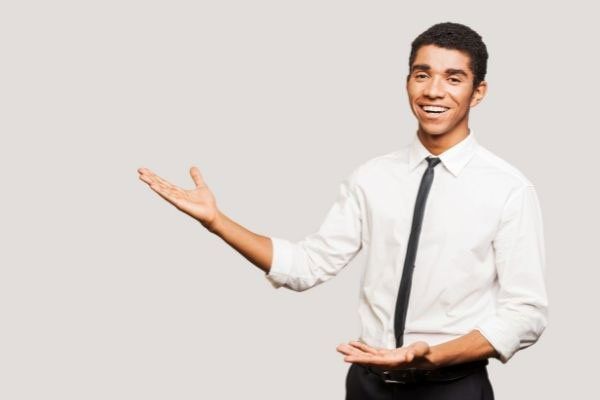 Youth Development: In sales, to be able to sell a product, you need to be confident.
Youth Development: In sales, to be able to sell a product, you need to be confident.My mom turned around and said to me, “You have to be a blank canvas. On this blank canvas, you paint everything and you become that picture.” You’ve got to be open to this new information. Don't be closed. If you closed, then you might as well stop from there. You’ve got to be open to go and say, “Let me take on this information, refine it and go back again.” Always be open and always be willing to get up because it's going to be a lot of knockdowns. You’ve got to get out quick as well. None of this, “I'm in pain.” No. Get out quick and be ready.
A lot of times, when people are starting a business, they do the customer services and they figure out, “I know everything the customer needs,” and they’re not open to receiving information and that feedback loop that allows them to improve their product or services. You have to be open. I love that. I'm going to go back to a conversation we had earlier before we started. I told you that I often go out to the schools and high schools and talk to students.
Out here, I do programs where I help young people get jobs, their first job, or internships, so they get that experience. I always tell them to pay attention to that job because there are a lot of things they can learn in that job that will help them be successful later on in their future if they get the lesson. My question to you is, what was your first job? What are some things that you learned from that first job that you still carry with you today?
My first job was as a laborer, but I haven’t learned anything from that. I learned skills when I went to be a door-to-door salesman and it was commissioned-based. This was when I was learning to be confident with myself. At the time, I didn't have the confidence. In sales, to be able to sell a product, you’ve got to be confident. You’ve got to be confident to be able to sell it. How do you be confident about the product? You then have to find information to then say, “I know this.”
I had to sit back and go, “Okay.” When I look at it, being confident with myself, I was going to find this information to be able to push myself because clearly, if I'm not confident, there's a lot of information missing in my head. That's the way I've looked at it. What I did was I read so many books on life. It's hard to get an understanding of what passion is and where passion comes from. How I do my business is pretty much how I do my life.
What would you say once one good lesson life has taught you? Your knowledge of self, self-mastery, everything that you learned from Tony Robbins and the mentor, life has probably taught you a lot of lessons. What's one good lesson life has taught you?
It goes back to what I was saying before. You always get knockdowns and you’ve got to get up straight away. You always want to get knocked down. It doesn't matter about business. It's life, business, or whatever. You're always going to get knocked down. People are always going to say no to you, but it all depends on what you say to yourself and how fast you get done. That's what got me on here.
When I speak to people, they can almost see that I’m, and I agree with them, arrogant. Yet, in a way, I have to be arrogant to be able to be successful. Most people assume that there's so much negativity in the air that I need to protect myself. I've got to protect my life. Sometimes, I get myself a lot. I know someone's on a call, but when it comes, I know to, “Soak it in and get back up again. We don't cry in this. We go again and we go again until we get it.”
You’ve got to have a level of confidence and arrogance because if you know so much people will doubt your ideas. When you become successful, people even have the audacity to be like, “He's an overnight success. He didn’t work as hard and as long.”
When I started getting into my reading and stuff like that, my mentor said to me, “What I want you to do is I want you to start listening to BBC 5 Live.” There's no music on this radio. All they do is talk about different information and ask him, “Why is it that you want me to listen to this?” He goes, “What will happen is the way you talk will change.” I was like, “What are you talking about?” He goes, “You listen to hip hop music. Mostly, the language that you’re going to say comes from hip-hop. Change it.”
I did that. Bear in mind that when I went to school, I only went for one lesson and went home because I was bad at school. I wouldn’t say I was great at talking and using big words and stuff like that and knew how to be around different types of people. I'm short with different words. When I learned that, and afterward, I'm starting to speak differently now. I've had people come up to me and say, “You’ve gone to college.” “You’ve gone to University.”
You need to find who you are and what your passion is before you go in any direction.
I was like, “Only if you knew my life.” It’s weird like, “You've definitely gone to university.” “No, I haven't been to university. It is self-taught.” It's crazy. People don't understand that you can change, especially nowadays some people don't believe that you can change and you can reshape yourself, the way you look and talk.
You totally rebrand yourself and market yourself. Look at how many times Puffy Daddy or P. Diddy rebranded himself. What advice would you give to someone who would like to start a career or a business like Yams or get into entrepreneurship?
Before you started recording, you were talking about how it is passion. Many people have business ideas, and I speak to lots of people. Especially now, people will want to be more like entrepreneurs now than ever before. You need to find who you are and what your passion is before you go in any direction of doing business.
The mistake that I had was I was funneling money before. I was like, “This makes money.” I will go into that and I will never last long in it. I would stay for a little bit and I would go on to the next one. If you find who you are, you then find your passion. When you find your passion, you'll find what business you want to go in. If you've been in a business that you're passionate about, you will stay in it when the tough times come.
That goes right along with what I always say when I give these talks to young people. It’s what I alluded to before we started recording, “Do what you love. Love what you do. Don't take the money. Let the money chase you.” What I mean by that is when you’re doing something that you love, you do it with passion and bravado. It comes easy and people will gladly pay you top dollar for that thing that you do.
You can outlast recessions because people are willing to pay for that thing that you do even in a recession because it brings them value, whether you're great at organizing like my sister, you're great at solving problems with creative and innovative solutions, you make castles, whatever it is. People will still want that thing even in a recession because it brings them joy, value, or something that other people can't bring.
Also, from my sales, I learned that they would always change a charity every three months. There were seven charities at a time. There are charities that will change every three months. There were certain charities that I was passionate about and there were certain charities that I was not passionate about. My sales go up and down, so I learned that whatever I do, I've got to be passionate about it, so I'll always be 100% on it regardless of whatever comes in my way. You know me, I know I'll be 100% on it. For my dancing, everybody knows I'm a good dancer. Why? It’s because I loved dancing at that time. From the person looking at it, they can see there’s love in that.
They probably saw love and they wanted that energy around them as well, whether a choreographer or another dancer, so it carries with you.
That’s the advice I’ll give.
What do you think the future has in store for the next generation of Black and African entrepreneurs?
It's funny you say that because I was chatting with my girlfriend about the black community. Sometimes the black communities are doing well in terms of working together and sometimes, I see videos and I’m like, “You’ve got a long way to go.” I’m positive that we're going to get somewhere. What was the question again because I'm going in a different direction?
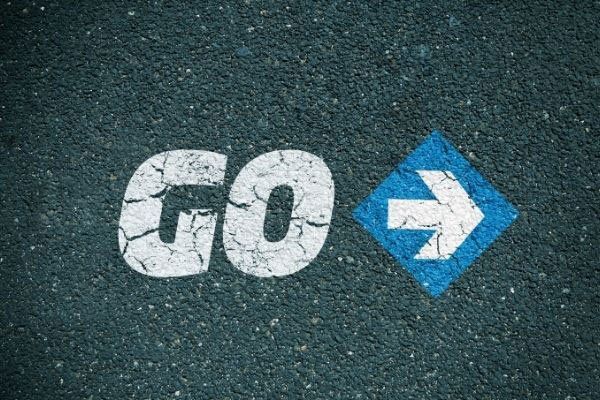 Youth Development: When there's a level playing field, once we go, it's go time, we're flying.
Youth Development: When there's a level playing field, once we go, it's go time, we're flying.We’ll go wherever we’ll go. What do you think the future has in store for Black and African entrepreneurs?
I see it doing fine. The reason why I'm saying that is that there's a level playing field now. For example, natural hair products. That birthed out of what? For what reason? It’s because of buying products that don't represent us and the people who are buying them don't respect us. Saying it birthed out of, “Let's do our own.” It's birthing without any cap of anybody trying to stop us and everything else. That shows you that we can be entrepreneurs. Without anybody blocking us, we can flourish.
Another example is this, the UK hip-hop scene. For a long time, nobody wanted to hear us because of our accent, this and that. Look at it now. The UK scene is blowing up. It’s the same amount of numbers as the US. It’s big numbers, so it shows you that we're in a good place and it's got to go to a place that we’re not even going to be able to describe
I'm even getting put on it over here in the US. A friend of mine sent me a video of Dave. He did this song called Black Live at the Brit Awards. That song was on point.
It shows you that we can do it too and when there's a level playing field, once we go, it’s go time for us. We're flying.
Are there some other artists I should be looking out for?
Tion Wayne. He put me on blast because I've listened to him. I’ve got a blank thing.
Shoot me a text and I'll tell everybody you gave me a whole bunch.
Millions is a good artist. I’ll shoot you a text because off the top of my head, it's gone blank, but I know the UK scene.
Out of curiosity, is that Afrobeat scene blowing up over there?
It’s been blowing up for a long time. For over twenty years, more African people are showing up now. You can see and feel that through the music. It's been blowing up lately. In London, they've got their own radio station. It's a big time. I don't listen to soul because I'm a big hip-hop fan, but they’re big things.
The world stops when you stop. It carries on when you carry on. It's as simple as that.
I see it starting to blow over here and I knew about it because of my influences growing up and the culture. A few people in the mainstream take it on and I'm like, “What's going on here?”
It's because there are a lot of Nigerians in England.
I do love what's going on with the UK hip-hop scene though because I feel that's the hip hop I grew up on from the ‘90s when we had people like Wu-Tang, Outcasts, and all that in the messages they were sending. The UK rappers are doing that.
To be honest, UK rappers have always been doing that. It’s because the record labels ignored those at the time. Every time a record label would give us a chance, they would Americanize it. They would have us on bikes. The video will have American cars. That does not represent us. We drive European cars. When this whole YouTube came about, bear in mind, we did our videos, but it was on a budget level. YouTube set it straight.
Let’s start from the beginning. I’ll tell you what changed the scene was the Chicago rapper, Chief Keef. When he had done that first video, I Don't Like, it was so budget, but it blew up. From that time, it was like, “We're going to make our own videos with our own little camera. We don't care how cheap it looks. We're going to do that.” That's when it started to level up because that’s when we show our own culture, the way we talk, the way we dress, how it is in the UK and that's how it started to blow. Now, you’ve got Americans people like yourself looking at it and going, “They’re kicking over there.” Also, it's got that heavy Caribbean influence in terms of how we rap and how we do the music. We're doing our thing.
I'm sure we could talk for hours, but I don't want to do a Sola interview here. I want the interview to stay in a car length drive so people can pay attention and listen. What projects are you currently working on and where can people find you?
I got nothing because I go to the barbers and sell stuff. I'm still doing that, but I remember when the lockdown was in tier 5. That means no go into anywhere within the city. Please don't ask me what tier 5 is because I still don't know and I still don't understand.
Don’t worry. We’re in a lockdown here too. I don't know how long it's going to last.
On the other hand, my girlfriend has her own business. It’s all boxes. It’s hair stuff. She does boxes. She packs them together and does it for a reasonable price. She's setting that, so we're investing in that. I’m here, there and everywhere at the moment. I'm investing in this and that. If one stops and I'm going to invest in this, so that’s where I'm at.
Once you get some online presence, definitely shoot us the link. We want people to be able to get in touch with you. We need those boxes.
Before you end the show, I know people turn around and say, “Don't give up.” “There's always a light at the end of the tunnel.” That only works when you keep on going in that direction. The minute you stop, that’s the end off. The world stops when you stop. The world carries on when you carry on. It's as simple as that. If you have that attitude, you will always go for it, and not only can you use that to be an entrepreneur but in your life in general. Keep on pushing. Always be willing to change and go in different directions, but you’re still going in that direction that you want to go. That’s my motto.
 Youth Development: Keep on pushing and always be willing to change and go different directions.
Youth Development: Keep on pushing and always be willing to change and go different directions.The world only stops if you stop. Make sure you keep carrying on. That’s something that I always try to say to and be mindful of any time you're going through anything, make sure you're going through it not stuck in. Brett, it's been a pleasure getting to know you and meeting you. Big ups to everything that you're doing. I hope that we get to connect again because this has been fun. Make sure that you guys tap into this episode. This has been another episode of RISEpreneurs. Make sure you check out some more of our content and check us out on social media. Those are inspiring words from Brett and some things about his girl and what she’s doing. Maybe we'll get her on one of these.
Get her on. She would love that one. She's good and well-spoken than me as well. She’ll keep that conversation, not as well as Sola, but she’s good.
RISEpreneurs, that’s the episode with Brett Izu. Thank you.
Thank you.
We’ll see you on the other side.
Important Links:
- Brett Paul Izu
- @Empowerblack333 – Brett Paul Izu Twitter
- @Bizu84 – Brett Paul Izu Instagram
- @Lay_N_Slay – Instagram
- Social Media – Rise Urban Nation Facebook
- Instagram – Rise Urban Nation
- Twitter – Rise Urban Nation
About Brett Izu
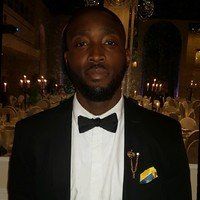
I help businesses connect their goods and services directly with the African and Caribbean community via my App. I partner with local retailers in the grocery industry, entrepreneurs whose goods and services are specifically for the African and Caribbean community.
When you partner with YamUp Inc, you get quick turnover on your inventory. You get to connect directly in the most efficient, effective, and affordable way to provide a mobile grocery shopping experience that the African and Caribbean community are looking for right now.
We are a one stop shop for your typical 6-8 hour shopping run. You can setup a family account where you can create joint shopping lists. We have what Africans and Caribbeans shop for and we deliver within 2 hours of you placing your grocery order.

